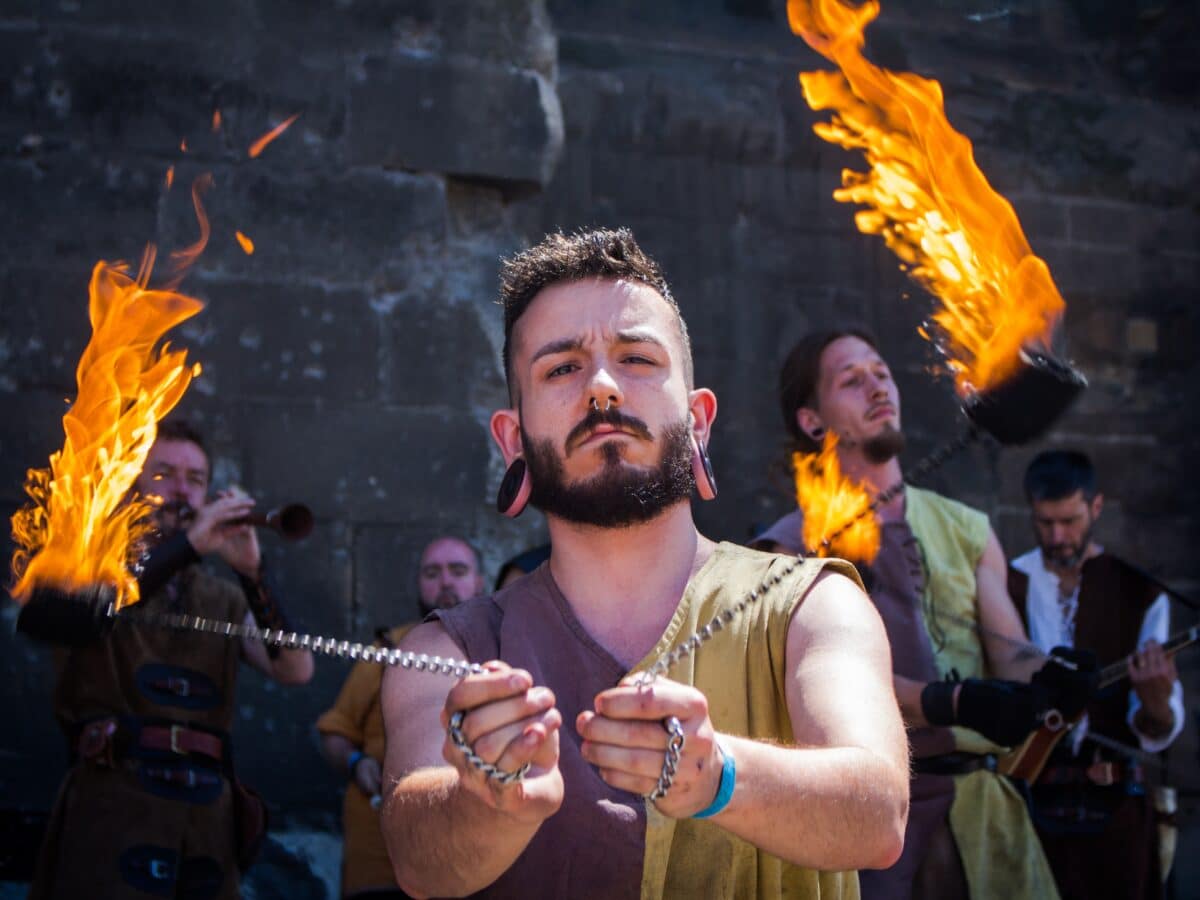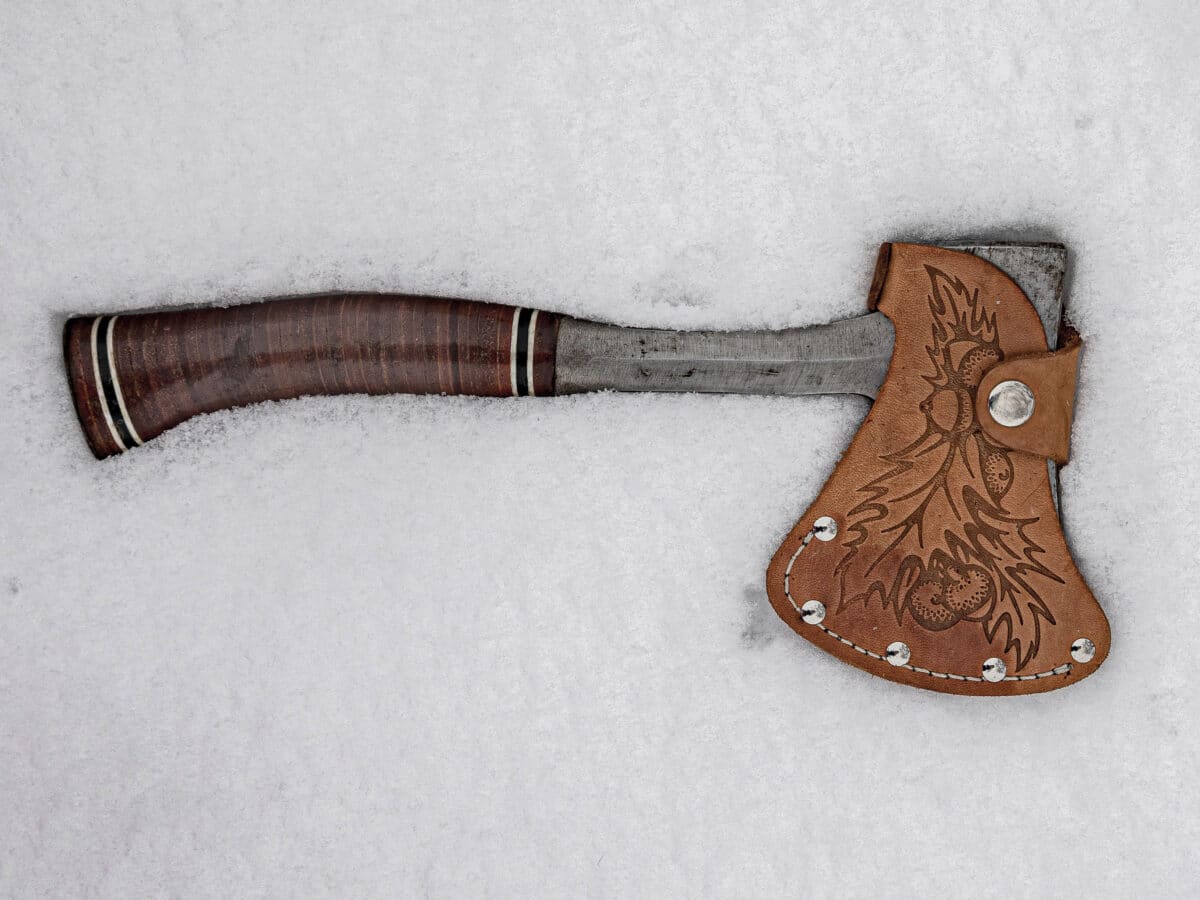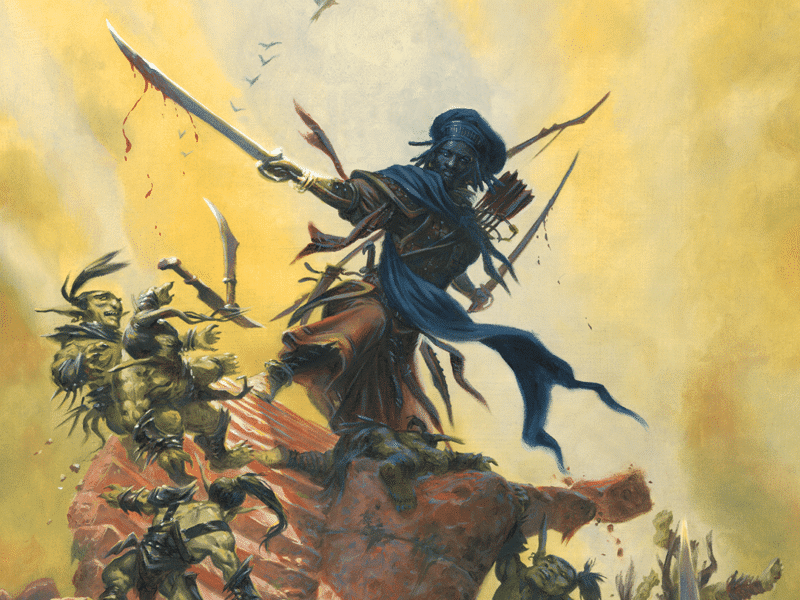Ah, the barbarians! A longtime feature of D&D, they’ve suffered endless belittlement and ridicule from other characters, especially mages and paladins. They’re also likely to be the ones who are surrounded by the strongest and ugliest preconceptions. The mere name is enough to evoke all kinds of, well, barbaric images, such as oversized and poorly maintained weapons, unkempt hair, clothes (or loincloths) made from roughly cut animal hide, inadequate schooling, and one mean temperament.
Historically, barbarians have made a name for themselves in many a group by snapping invaluable magic items in half because they’re magic – enough said! – and for starting fights in the worst of places due to boredom. No wonder they’re as feared by the members of their adventuring parties as by the monsters they’re hunting.
However, there’s endlessly much more to barbarian than meets the eye. It can be tremendous fun to lean into the stereotype, but by mixing it up with more nuances characteristics and unexpected quirks, you’re likely to end up with a character who’s more entertaining to play and more appreciated by the rest of their (slightly nervous) fellow adventurers.
In this article, I’m sharing a few ideas that you might find useful when rolling and playing a barbarian. As always, my suggestions are based on ideas that are fun rather than tactically sound or strategically effective. So if you’re looking for a guide to barbarian builds that are optimised to dish out or survive damage, this isn’t the place – but if you’d like some thoughts on how to make the most of these wild combatants, read on!

You’re one with the terrain
Let’s start with a straightforward but rarely fully explored aspect of the typical barbarian: their closeness with nature. By definition, the barbarian is a person who has spent lots of time outside civilization, and whose ways are typically viewed as unrefined and crude by those who dwell in or hail from towns or other communities. But what you may lack in manners and sophistication, they miss in affinity with the wild and the manifold creatures that live there. They might know how to hold cutlery properly, but you possess the insight into how a fox’s mind works. They can perhaps navigate confusing downtown streets with ease by reading incomprehensible signs on the walls, but you can find your way in a forest by reading the ground and listening to the trees.
To use this characteristic to make a character with a distinct feel, you can home in on a specific type of environment, consider how it would have shaped them as individuals, and develop their different traits based on that. For example, let’s say that your character is a barbarian who has grown up on a series of small and sparsely populated islands far from the coast of the mainland. That would probably mean that you’re an excellent swimmer but a poor runner. You might know a lot about fish and birds that live at sea, but almost nothing about other animals. Maybe you’re an expert with spears (because they’re used by your tribe for fishing) but totally new to weapons like swords or axes, because they’re not particularly useful on a tiny island. It might be that you can build rafts with great skill, but have never before heard of the concept of a “boat.”
If your character grew up on a mountain, this would have affected them in wildly different ways. Such a background might mean that they’re terrific climbers and able to make great leaps, but completely unable to swim. Maybe they’re extremely proficient with pickaxes (as these can be used for climbing faster) but never have used a ranged weapon (because they tend to go missing if you miss your target and you’re hunting on a cliffside). They could be versed in different types of rocks but unable to tell a beech from a fir. As for animals, maybe you know everything about eagles and goats, but think that cats are a myth (and be terrified of them!).
You’re loyal to a fault
While some barbarians are loners and as new to civilization as they are to other people, the archetypal barbarian is dependent on their tribe – and consequently, they’re probably fiercely protective and supportive of its members. But when a barbarian goes adventuring, presumably far from their home, their “tribe” might change to be – or become expanded to include – the other members of the heroes’ party. As a result, a barbarian is likely to be tremendously caring of and devoted to their friends – yes, even the vain wizard, the hopelessly calm paladin, and the always-talking-or-singing but still strangely likeable bard.
This is a strong card to have on one’s hand when it comes to the social aspect of D&D! There’s something fantastically satisfying about storming in and come to other people’s rescue, or standing up for them in tense situations without a morsel of café for one’s own wellbeing. If the gnome sorcerer accidentally offends an entire village by mistakenly setting a thatched rood on fire with a misaimed fireball, you have the spellcaster’s back without thinking – you can handle a bunch of farmers with one of your hands tied behind your back! If the insufferably honest paladin gets in trouble with the whole town guard by pointing out how brutish they are, you’re right there to back the knight up in case words turn into blows (which, weirdly, they usually do when you’re involved).
So there’s plenty of entertainment to be had from being pig-headedly loyal to your group. What’s more, playing your barbarian like this will also make your character – and you – popular among the other characters and players, which always is a good thing.
You keep going
“Barbarians don’t stop”. That’s this point summed up in a few words. But to expand and elaborate, the barbarian often has the capacity – or at least the intention – to soldier on when the rest of the party is flagging. These characters are usually toughness personified and can soak up a massive amount of pain before they topple.
However, being able to take a lot of damage and still keep fighting is only half of what I’m suggesting. Absorbing cuts and bruises is only a technical advantage, and as mentioned above, these posts are about fun! And the amusement here is largely about the barbarian’s inclination to press on in any situation.
Take travelling, for example. In Dungeons & Dragons, lots of so-called adventurers are going on quests while they’re lugging along bulging backpacks filled with useless bric-a-brac, such as double bedrolls, extra kitchen utensils, numerous spare weapons, fragile tools, heavy books, additional sets of clothes, and enough food to feed a pack of wolves for weeks. And that’s before we start to count the coin and items that they loot! Meanwhile, you’ve got a handful of gear, your favourite weapon, and that’s about it.
The consequence of this imbalance is that while you’re ready to march for miles after the sun’s vanished from the sky, your friends will start to moan about dinner and scout for campsites only hours after you’ve finished having lunch (which also requires a lot of unnecessary sitting around instead of munching on the go). This is a great opportunity for the barbarian to get impatient and annoyed (in a way that’s humorous, mind you – no one likes actual complaining!). For example, when the oh-so-at-home-in-the-woods ranger asks “Should we strike camp at this convenient spot and make ourselves nice beds from freshly cut fir tree branches?”, and the halfling says “What a swell idea! I’ll start on a three-course meal right away! I’ll have the meal ready in just two hours!”, you simply reply “Midnight is hours away. Let’s keep moving. Ideally until dawn.” Not that the group will continue, at least not if it’s governed by the majority, but that doesn’t matter – it’s what comes next that does.
When the ranger is cutting down branches and the halfling is busy slicing pork, you have all this pent-up energy that you can’t burn off by walking or running…or maybe you can, because surely everyone will appreciate if you patrol the camp nonstop for a few hours, and reappear every now and then to check in on your fellow (but clueless) adventurers. This provides the Dungeon Master with a brilliant opportunity for throwing in unexpected encounters or, in case the eagle-eyed barbarian happens to spot a band of monsters that deserve a beating, a bit of general mayhem.
Or maybe you can alleviate your frustration with all this slowness by helping out at the camp! If the halfling needs assistance with the preparation of the party’s rather nice-smalling dinner, no one is better than you for the job of dicing potatoes – with your sword. Actually, why bother asking? Just go ahead! Or should the ranger require aid with the making of the bedding, give them a hand by lopping down a tree or two so that the branches are easier to reach. Hopefully, none of the trees will fall into the camp – but if one does, that means you won’t have to walk anywhere! Everybody wins!
Likewise, this attitude is in play when it comes to other areas when playing D&D. If it’s a case of needing to stay awake to keep watch outside an isolated inn where a bandit leader is rumoured to hide, you’re up for the job. Let the mellow bard and the meek paladin rest – they need their beauty sleep. You can stay sharp for as long as it takes while the rest of your (softer and more easily bruised) company snores away. It’s only a matter of willpower. At least in the beginning. When that begins to fail, you’re clever enough to think of other ways to keep the Sandman at bay. You could prick yourself with your sword every now and then to jolt yourself fully awake. If a little blood (and a few hit points) go missing, no one needs to know. Failing that, maybe some of those herbs that the (currently sleeping) druid is carrying around might dispel the drowsiness? There’s only one way to find out! Best to eat all of them to make sure that you don’t miss out on the right herbs. And so on.
Likewise, if there’s a drinking competition, who continues to down the ales while the others either are unconscious or have stopped from fear of passing out (or just abstained from joining in the first place given that the party has agreed to travel when the sun rises)? That’s right – the barbarian. There’ll be a price to pay for being unstoppable, of course, but that can be countered by continuing to drink through the next day as well. If that happens to be the same day that you’re going up against a lethal vampire in a castle crawling with undead monsters – well, then maybe your friends should’ve stopped drinking a bit sooner, don’t you think, or you wouldn’t have had to guzzle mead all day! You can hardly be to blame for not giving in so soon, right?
Part of this can be attributed to the barbarian’s (hopefully) high Constitution score, but the mindset is just as important and also what contributes the most to the fun around the table.
You know the value of coordinated attacks and group tactics
Which, sometimes, can be none at all. If you’re a current or former member of a tribe, it’s likely that you have some experience (and maybe even a bit of training) in battling enemies as part of a group. This could be three other people or a whole horde, and the approach of this group might be anything from “let’s send the best fighters at the mightiest opponents while we stay away from those pesky archers” to “everyone run at the enemy and bash them into the ground!” So this is not to say that all attempts at teaming up with other warriors are bad and doomed to fail.
However, as a barbarian, you know the benefits of moving fast, striking hard, and preferably hitting the monster square in its face before it bites you in half. That extra movement speed granted by your class is there for a reason! So if there’s a fight about to take place, and your comrades in arms can’t seem to make up their minds about who goes where or does what in which order, then do what you do best – storm up to the target and show it who’s boss! Stalking and tracking a quarry discreetly is all good and well – it’s hard to slay a monster that insists on running away – but when sneaking turns into fighting, action beats caution at every turn.
Go big or go home
Barbarians are famous – or possibly notorious – for carrying around huge weapons. There are multiple reasons for that. Firstly, they know how to use them. You’ve probably trained with massive weapons since you were big enough to lift them off the ground, and you know every thick in the book when it comes to swinging them to full effect. Secondly, it’s likely that you aren’t wearing much armour (who wants to walk around stiffly and wrapped up in metal when you can dance around the enemy instead?), so it makes excellent sense (to you) that this I offset by using a weapon that weighs as much as a suit of full plate armour.
Thirdly, big weapons are scary. Sure, sharp daggers and gleaming shortswords can look unnerving, particularly up close. But nothing compares to a greataxe or a greatsword when it comes to true intimidation. A blade large and heavy enough to cut clean through a table leg is frightening at sight, especially if it’s in the hands of someone who clearly has the muscle mass to swing it around like a table knife (and who looks like they’re keen to do so).
You’re emotional
Bear with me – I’m not suggesting that the typical barbarian is overly sensitive and tends to be easily hurt by unfriendly words. What I mean is that just as the other classes can have complex characters with nuanced personas, the barbarian can be a multi-faceted person with a wide range of emotions. In fact, I’d even argue that given how easy it is for a barbarian to tap into their inner bestial sides and channel their anger into their fighting skills, these characters feel even more than most others.
A lot of people mistake you for a brute whose uncivilized mind is incapable of feeling anything but hunger for battle and food, or general rage at everything. That’s a great misconception. Contrary to what strangers believe, the truth is that you feel often and a lot.
Those were a few thoughts on the joys of playing a barbarian in D&D (or running a game for a group that contains such a character)! So when you’re planning a new budding hero for your game, remember that the barbarian class offers a lot of variation – and can bring plenty of amusement to the group!







